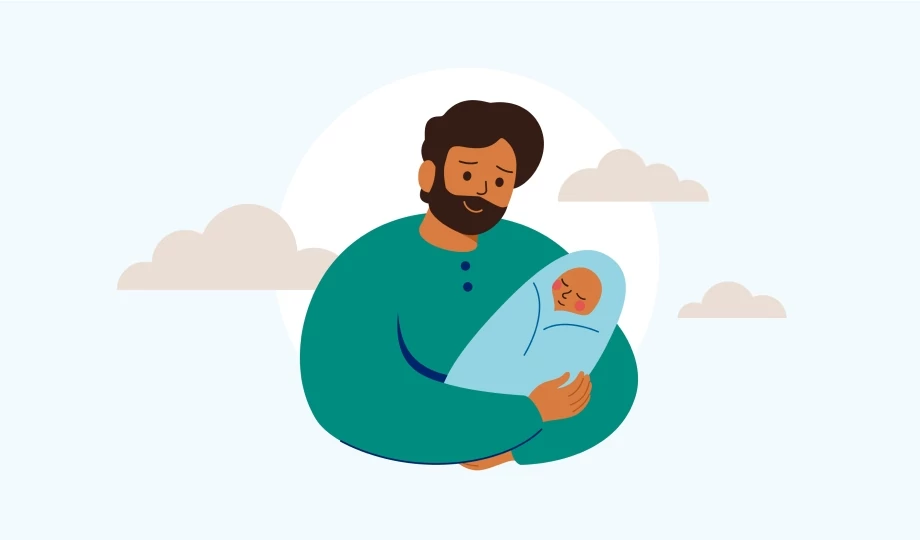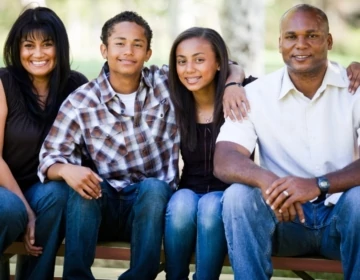Feeling sad after childbirth is a reaction to hormonal changes that happen before, during and after the birth of the baby. This is commonly known as ‘baby blues’ or `postpartum blues’ which usually affects mothers, but statistics have shown that 25% of fathers experience it as well. It is a temporary and short-lived mental health disorder causing mood swings and bouts of sadness.18
Several helplines are available to support you and your partner following childbirth. If you or your partner are experiencing a low mood or constant sadness, you can check how you’re going at PANDA https://www.panda.org.au call 1300 726306 or consult with your health professional.
If you are concerned about your or your partner’s emotional or mental health, you can find more information at Beyond Blue https://www.beyondblue.org.au or call 1300 22 4636.
If you are concerned about your or your partner’s ability to communicate in English, you may be able to request a professional interpreter.
What is perinatal anxiety and depression?
Perinatal anxiety and depression are serious mental health illnesses that occur around the time a couple are expecting a baby – either during pregnancy (antenatal) or after the baby is born (postnatal).19 Expecting a baby, especially for the first time, is a life-changing experience that can be both an exciting and challenging one. Everyone’s journey into parenthood is unique. Experiencing feelings such as fear or worry about parenting is normal; however once these feelings start to overwhelm you and take over your whole experience, it is time to seek help.
One in 10 new fathers suffer from postnatal depression, mainly in the three to six months following birth.20 Emotional changes that last longer than two weeks and interfere with your daily activities could be a sign that you may be experiencing postnatal depression. It may be difficult to talk about your feelings or you may feel unsure because your partner is displaying behavioural changes and you’re not sure how to help.
What is the difference between baby blues and postnatal depression?
Previously, both baby blues and postnatal depression were only associated with women. However, men can also be mentally and emotionally affected during the period of pregnancy and following birth.
Baby blues refers to short-term period of sadness and feeling low that usually disappears on its own, but postnatal depression can continue and may require treatment.
How can you recognise the symptoms?
Both men and women may present symptoms of anxiety or depression during pregnancy and early parenthood. Signs and symptoms of perinatal anxiety and depression in men can include:
- constant tiredness/exhaustion
- high physical stress levels, e.g. muscle tension, headaches
- reduced interest in things you enjoyed previously (hobbies, work)
- sleep problems (unrelated to baby’s sleep)
- ongoing irritability, anger or moodiness
- emotional withdrawal from your partner, baby, family, friends22
- not wanting to communicate with your partner, family and friends
- using alcohol or drugs to ‘escape’ or cope
- suicidal thoughts and behaviours.
For further information:
Translated factsheets on Anxiety and Depression in Pregnancy and Early Parenthood (available in Chinese, Vietnamese, Urdu, Somali, Arabic) - https://www.panda.org.au/awareness/resources
Translated resources on mental health and parenthood -
https://www.beyondblue.org.au/who-does-it-affect/multicultural-people/translated-mental-health-resources
If you require further information on how to recognise symptoms, ask your health practitioner.
If any of these issues raise a strong emotional response for you, and you need to talk to someone, call:
Lifeline: 13 11 14
MensLine Australia: 1300 78 99 78
Beyond Blue support service: 1300 22 46 36


